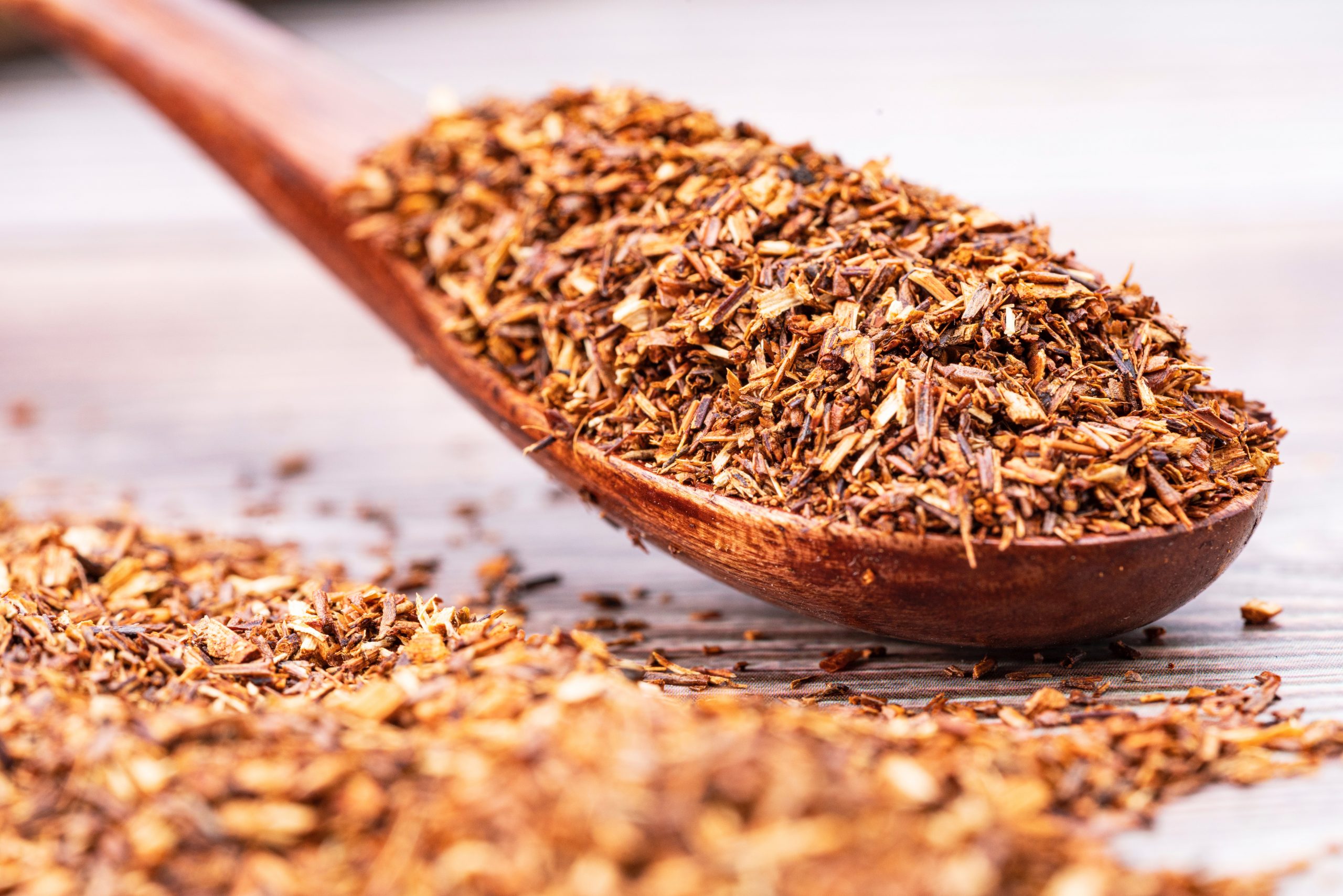Health Benefits Of Flax Seeds

Flax seeds, also known as flax or linseed, are small oil seeds, usually brown or yellow, originating from the Middle East. These seeds are very rich in essential omega-3 fatty acids, fiber, and other plant compositions, and have been used for centuries due to their health-protecting properties which according to NutritionFacts, include:
- controlling cholesterol, triglyceride, and blood sugar levels,
- helps against breast and prostate cancers (due to their high cancer-fighting lignans),
- helps lower the risk of diabetes
- helps lower the risk of heart disease
- reducing inflammation
- treating constipation
From crackers to oatmeals, flax seeds can be found in most of today’s food, and the consumer demand for these seeds is growing every day. Flax seeds are available as seeds, oil, powder, tablets, capsules, as well as flour.

Credit: TeaCora Rooibos (Unsplash free use)
Flax Seeds Benefits
While flax seeds are praised as a super-food, not all their benefits are backed by science. However, they do contain nutrients that can help prevent certain diseases.
According to Healthline, one tablespoon of ground flax seeds contains:
- Calories: 37
- Protein: 1.3 grams
- Carbs: 2 grams
- Fiber: 1.9 grams
- Total fat: 3 grams
- Saturated fat: 0.3 grams
- Monounsaturated fat: 0.5 grams
- Polyunsaturated fat: 2.0 grams
- Omega-3 fatty acids: 1,597 mg
- Vitamin B1: 8% of the RDI
- Vitamin B6: 2% of the RDI
- Folate: 2% of the RDI
- Calcium: 2% of the RDI
- Iron: 2% of the RDI
- Magnesium: 7% of the RDI
- Phosphorus: 4% of the RDI
- Potassium: 2% of the RDI
So, flax seeds are quite rich in nutrients, however, their health benefits are primarily due to their high content of omega-3 fats, lignans, and fiber.
Let’s explore more health benefits of flax seeds which are actually supported by science, according to Healthline.
Don’t miss out on: Flax Seeds – Here Is How And Why To Use Them For Hair Growth
Help improve cholesterol
Flax seeds have the ability to lower cholesterol levels due to their high fiber content. According to a study done with people with high cholesterol, consuming three tablespoons (30 grams) of flaxseed powder every day for three months, lowered their total cholesterol by 17%, as well as “bad” LDL cholesterol by 20%.
Another study done with people with diabetes showed that taking one tablespoon (10 grams) of flaxseed powder for one month, increased the “good” HDL cholesterol by 12%.
While a study done with postmenopausal women, showed that taking three tablespoons (30 gram) of flaxseed powder lowered their total cholesterol by 7%, as well as LDL cholesterol by 10%.
Offer cancer protection
Due to their high content of omega-3 fatty acids, flax seeds are believed to disrupt the growth of cancer cells and prevent their development. In addition to omega-3 fatty acids, flax seeds also contain lignans which are thought to have antiangiogenic properties and stop tumors from creating new blood vessels, says MedicalNewsToday.
Many studies have shown that incorporating flax seeds into your lifestyle and diet can reduce breast cancer risk, as well as other types of cancer. In 2008, a study conducted with 161 men showed that taking flax seed, especially when following a low-fat diet, stopped prostate cancer tumors from growing.
You might also want to read: Basil Seeds Benefits
Help reduce inflammation
According to WebMD, flax seeds contain ALA and lignans which may reduce inflammation associated with illnesses like Parkinson’s disease and asthma because they prevent the release of certain pro-inflammatory agents. Many studies have found that ALA can decrease inflammatory reactions in humans, while lignans have shown to decrease levels of many pro-inflammatory agents in animals.
Help lose weight
Because flax seeds are rich in soluble fiber, they can reduce hunger and appetite which in turn help you lose weight, says Healthline. According to a study, people who included flax seeds in their diets lost an average of 2.2 pounds (1kg). The weight loss was particularly successful in studies that lasted over 12 weeks and among people who took more than 30 grams of flax seeds per day.
Don’t miss out on: How To Boost Metabolism To Lose Weight
Ground flax seeds vs. whole flax seeds
Nutrition experts recommend ground over whole flax seeds due to the ground form being easier to digest, but also because whole flax seeds can go through your intestine undigested in which case you won’t get all their benefits. Note that flax seeds should be taken with water or other fluids.
If you’re looking for ways to incorporate flaxseed in your diet, consider the following:
- add a tablespoon of ground flax seeds to your breakfast cereal (hot or cold),
- add a tablespoon of ground flax seeds to your sandwich,
- add a tablespoon of ground flax seeds to your yogurt,
- use ground flax seeds to bake muffins, cookies, bread, or others.
Flax seeds should not be consumed at the same time as oral medications. Pregnant women and breastfeeding mothers should also avoid flaxseed consumption.
*Please seek medical advice before trying any dietary supplements.
Disclaimer: The contents of this article: text, graphics, images, and other materials contained are strictly for informational purposes only. The content is NOT intended to be used as a substitute for professional diagnosis, advice, or treatment. Please, ALWAYS seek the advice of a qualified healthcare provider or cosmetologist with all the questions you may have about any medical condition or beauty regimen.
Read also: What Are The Chia Seeds Health Benefits?

